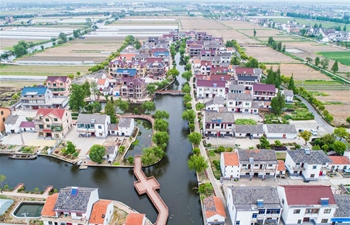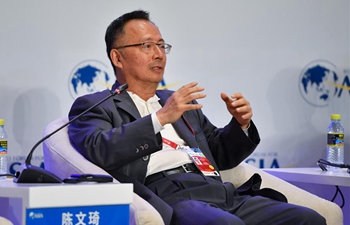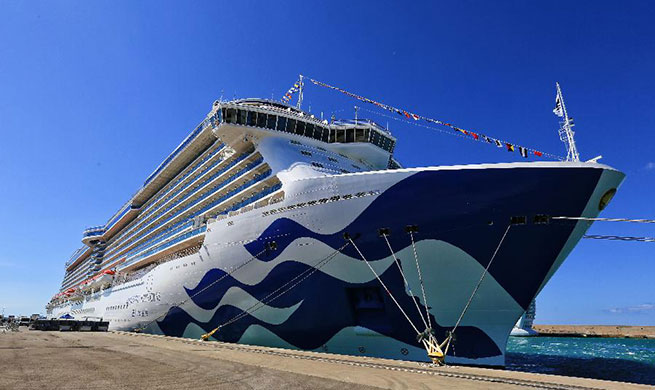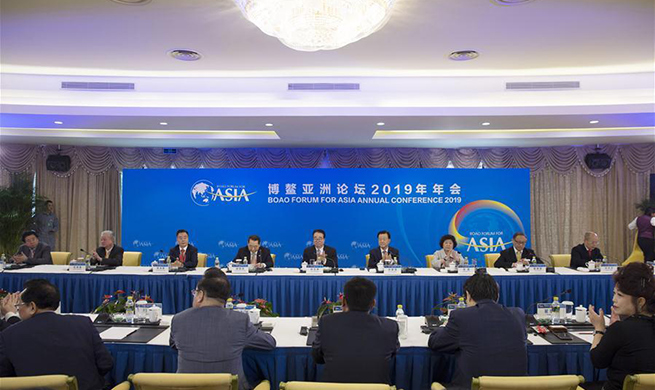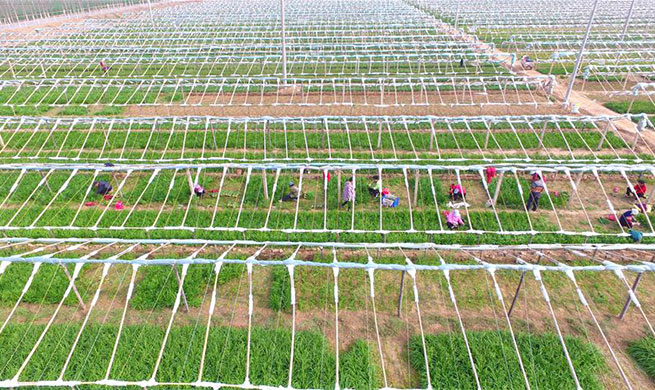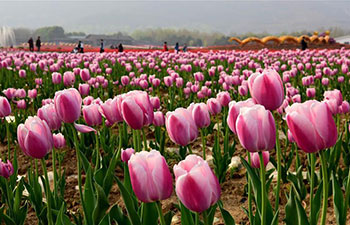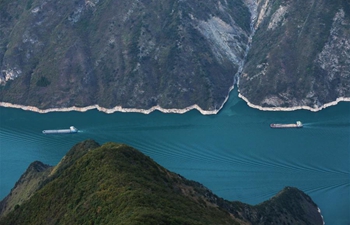BELGRADE, March 29 (Xinhua) -- Serbia can continue to make progress in EU integration despite the current standstill in the Belgrade-Pristina dialogue, said Johannes Hahn, European commissioner for European Neighborhood Policy and enlargement negotiations, here on Friday.
Hahn made the remarks after his meeting with Serbian Prime Minister Ana Brnabic. He also stressed the importance of Serbia's participation in regional integration initiatives.
Hahn started his official visit to Serbia on Thursday evening by meeting Serbian President Aleksandar Vucic. On Friday morning, he exchanged views with Brnabic about Serbia's progress in conforming with EU rule of law, the overall European integration process, and Belgrade's participation in future regional integration initiatives in light of the recent tensions between Serbia and its province of Kosovo and Metohija that unilaterally seceded in 2008.
At a press conference later on Friday, Hahn said that although the key precondition for Serbia's accession to the EU -- dialogue between Belgrade and Pristina on the normalization of relations, as defined in Chapter 35 of the EU acquis -- could not yet be met because of Pristina's decision to impose tariffs on goods from Serbia and Bosnia and Herzegovina, Serbia can still make progress in the remaining 34 chapters in the meantime.
"Dialogue is important, but dialogue is not everything in terms of getting Serbia closer to the EU," Hahn said, announcing the opening of new chapters before his mandate ends at the end of October.
"It would be wrong and there is no reason to stop everything just because currently, for well-known reasons, there is a standstill in the dialogue," Hahn said.
Previously, Brnabic complained that Serbia's efforts to build "a more stable, more integrated and economically prosperous region" have been hampered by 100 percent tariffs that were imposed several months earlier by provincial authorities.
"We are currently looking for a way to sign the regional roaming agreement, although it presents a major challenge for us, and I personally do not think that it is fair to insist on some further regional agreements when Pristina disrespects some of the most basic ones, such as the Central European Free Trade Agreement (CEFTA). However, we will see what we can do, and we will continue to discuss all the other regional initiatives," Brnabic pointed out.
She singled out several other integration initiatives in the areas of transport, infrastructure and energy, including the establishment of the Secretariat of the South East Europe Transport Community in Belgrade, which would be endangered if Serbia gave up the project in reaction to Pristina's tariffs.
Hahn said that Serbia is "by far the most interconnected country in the region" and that its economy benefits most from advanced regional cooperation.
"I fully understand your annoyance over the imposition of tariffs by Pristina. It is something we tried to address and to remove, because it clearly opposes the idea of a single market and is definitely hampering further development in the areas of trade and cross-border cooperation," he said.
During his meeting with Vucic on Thursday, Hahn said that Serbia should make further progress in the areas of democracy and rule of law, a government press release said.
Vucic told Hahn that Serbia respects the "highest democratic principles and will follow the example of France, Germany and other EU countries when it comes to key issues, such as the rule of law and the work of police and courts."
On Friday, Hahn also met with representatives of Serbia's opposition parties. He was scheduled to conclude his visit in the Serbian town of Golubac, where a medieval fortress was reconstructed with EU funds.

